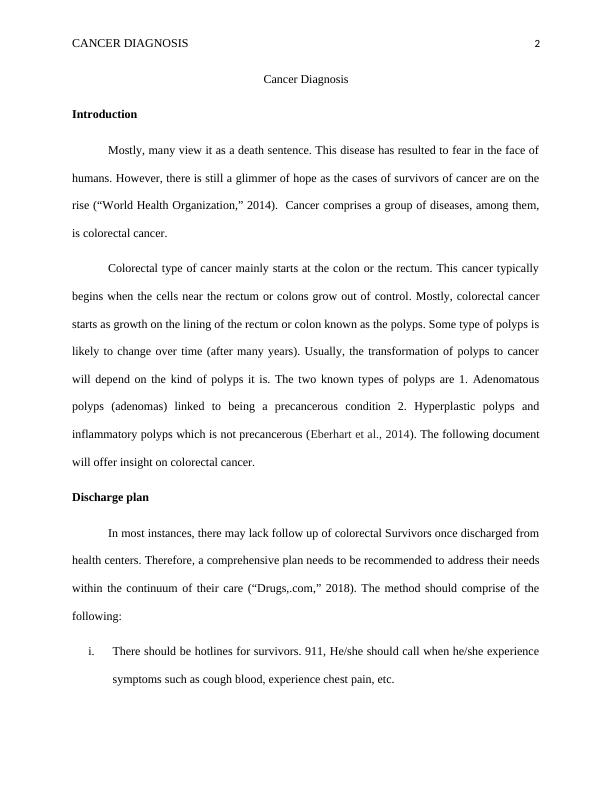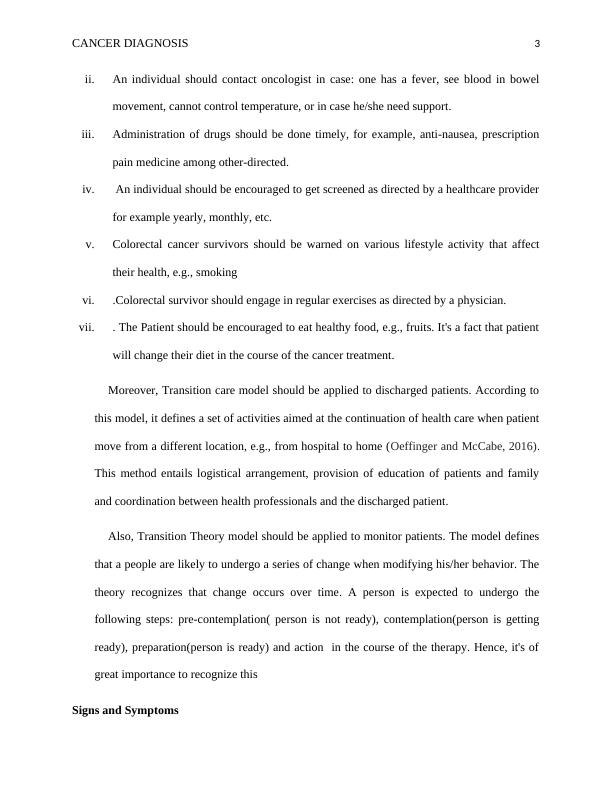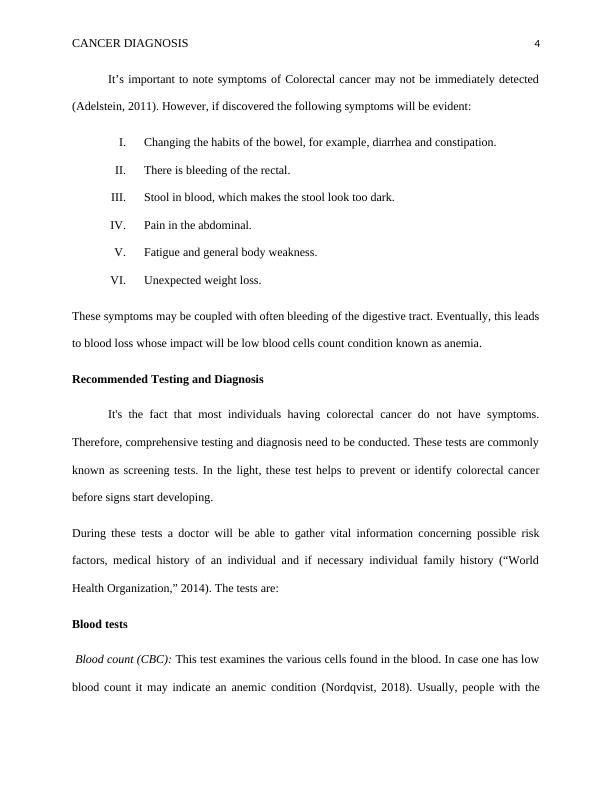Cancer Diagnosis: Symptoms, Testing, and Self-Management Plan
Develop a discharge and self-management plan for a patient with colorectal cancer.
12 Pages3091 Words265 Views
Added on 2023-06-12
About This Document
This article provides insight on colorectal cancer diagnosis, symptoms, testing, and self-management plan for survivors. It covers discharge plan, recommended testing and diagnosis, and education and self-management plan. It also discusses the signs and symptoms of colorectal cancer, recommended testing and diagnosis, and education and self-management plan.
Cancer Diagnosis: Symptoms, Testing, and Self-Management Plan
Develop a discharge and self-management plan for a patient with colorectal cancer.
Added on 2023-06-12
ShareRelated Documents
End of preview
Want to access all the pages? Upload your documents or become a member.
Partnership in Health and Illness
|10
|2715
|84
Assignment on Colorectal Cancer
|10
|2438
|58
Oncology Nursing: Management for 3rd Stage Colorectal Cancer
|11
|2979
|52
Discharge and Self-management of Colorectal Cancer
|9
|2603
|261
Discharge Planning for Colorectal Cancer Patients
|9
|2019
|68
The case of Harold Shipman True Crime Nightmare
|13
|3834
|18




